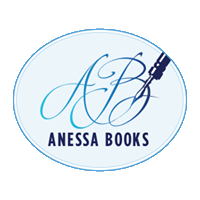
As a romance author I hear this all the time: “Oh, I don’t read romance. It’s all the same.” Or “I would never write romance, it’s just formula.” Or “Writing romance must be so easy, you just follow the formula.”
Well, friends, let me tell you, mysteries follow a formula. Sci fi, fantasy, and thrillers do as well. Nearly all books follow a “formula”. It’s called a story structure and if we didn’t follow it our readers would either be confused or dissatisfied. Unless you are writing “literary fiction” all readers expect the same thing to happen at certain points in the story.
Ready for it? Here’s the formula:
- Inciting Event
- First Major Turning Point
- Climax
- Dark Moment
- Resolution
That’s it! That is the formula for writing a book. Easy right? Just fill those in and-boom!—you’ve got a story!
Now wait a minute, I hear you say, those are just the major beats that can be found in nearly all pieces of fiction. That’s Freytag’s Pyramid. You probably studied it in your English class in high school.
Well, I’m sorry to say that is the formula used by romance authors. There is no other. It is the basis of all stories.
So, do romance authors write to formula? Sure we do! Just like every other author of popular fiction.
Well, hang on a minute, what about tropes? All romance characters are the same. There are only so many tropes those characters fall into. It’s true. There are some standard tropes used by most romance authors. There are also tropes used by authors of every other genre.
Is this a bad thing?
No, it is not!
Using a trope is a great place to start creating a character. There is a definition to each trope that can be used to start thinking about the character you want to create. But, please, do not feel bound to the trope. It’s only a place to start. In all likelihood, once you create a backstory and the character’s internal and external goal, motivation, and conflict, you are going to end up with a very different, very unique character.
There are also story tropes for each genre. You can find a great many listed on the website TV Tropes. Again, this is a good place to start or to consult if you’ve hit that sagging middle. Reminding yourself of the trope and your character’s GMC will show you how to get through those difficult parts.
All right, I hear you say, but what about archetypes?
They are amazing for writers! They are similar to tropes, but they are the original. Think Superman to every superhero in existence. He’s the original. All other superheroes are based off a version of him. Also, according to Christopher Vogler in his wonderful book (that every author should read) The Writer’s Journey, your character does not need to conform to one archetype throughout your book. The archetype is a feature of the character, who they need to be at a particular moment in your story. They are also the personification of various human qualities. The traditional archetypes, as defined by Joseph Campbell in The Hero With a Thousand Faces are:
Hero
Mentor (wise old man or woman)
Threshold Guardians
Herald
Shapeshifter
Shadow
Ally
Trickster
If you search for fiction archetypes you will get lists like “The 12 Literary Archetypes”, “8 Proven Archetypes”, or “16 Archetypes to make your story into a bestseller”. Take your pick of these or go back to the original who first defined literary archetypes (Campbell), it doesn’t matter. Just know that all characters fall into an archetype at one point in your story and probably flow through a number of them depending on what the character is called upon to do.
So, yes, romance authors do follow a formula for their books. No, it doesn’t make them any easier to write than any other form of popular fiction. Yes, our characters fall into tropes and they certainly follow archetypes. Does that mean they’re all the same? Just as much as every Science Fiction novel ever written is the same.
No matter what genre you write you will need a story structure and well-developed characters. They are the building blocks of fiction. Now, how you decide which story structure, and whether your protagonist will fall into a particular trope or not is up to your, but don’t fear the formula, trope, or archetype. They are essential and are probably there whether you name them as such or not.
